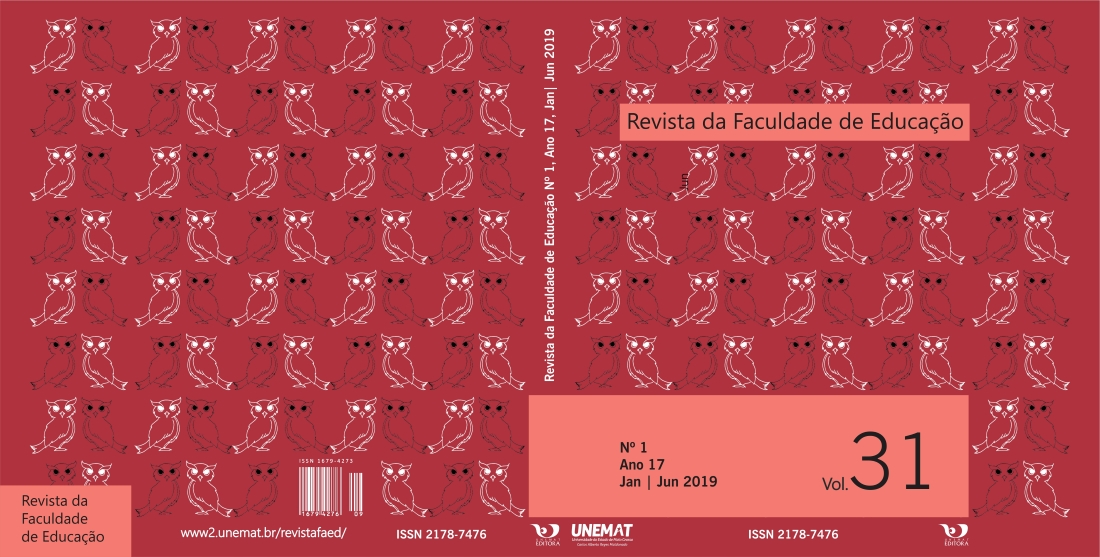REVITALIZANDO O SIGNIFICADO DA DIVERSIDADE POR JUSTIÇA RACIAL NA EDUCAÇÃO
DOI:
https://doi.org/10.30681/2178-7476.2019.31.1333Resumo
O concepto da diversidade mina o verdadeiro espírito de qualquer política de ação afirmativa, que é remediar o racismo da sociedade e promover a justiça racial e igualdade. Isto porque “diversidade” diferentemente de justiça racial pode significa qualquer diferença humana não relacionada à desigualdade social. Infundindo a noção de “diversidade” com as descobertas da investigação de preconceito implícito significaria considerando a meta de “diversidade” como um dispositivo para fazer os procedimentos de admissão mais justa e justificada em meio ao preconceito implícito contínuo que pode ser realmente medido. Além disso, conectando a meta a diversidade como um dispositivo para tratar processualmente preconceito implícito nas decisões e padrões de admissão também reposicionando a ação afirmativa como um projeto de justiça racial.Downloads
Referências
APPIAH, K.A. Lines of Descent: W.E.B. Du Bois and the Emergence of Identity. Cambridge: Harvard University Press, 2014.
BANAJI, M.R. et al. How (Un)ethical Are You? Harv. Bus. Rev. v.1, p. 3-10, Dec.
BANAJI, M.R.; GREENWALD, A.G. Blindspot: Hidden Biases of Good People. New York: Delacorte Press, 2013.
BELL, D. Diversity’s Distractions. Columbia Law Review, v. 103 p. 1622-1633,
ROSBY, F.J. et al. Affirmative Action: Psychological Data and the Policy De- bates. American Psychologist, v. 58, p. 93-115, 2003.
CHO, S. Post-Racialism. Iowa Law Review v. 94, p. 1589-1650, 2009.
.DEO, M. Affirmative Action Rationales & Outcomes: A Comparative Analysis
of the United States & India, Paper presented at the annual meeting of the
American Sociological Association, Montreal Convention Center, Montreal,
Quebec, Canada Online (Dec. 16, 2013). Available at http://citation.allacademic.com/meta/p_mla_apa_research_citation/1/0/4/4/8/pages104489/
p104489-1.php. Accessed on 18 nov. 2014.
GREENWALD, A.G. et al., Measuring Individual Differences in Implicit Cog- nition: The Implicit Association Test. J. Personality & Soc. Psychol. v. 74, p.
–1480, 1998.
GRUTTER V. BOLLINGER, 539 U.S. 306 (2003).
JOLLS, C.; SUNSTEIN,C. The Law of Implicit Bias, California Law Review v. 94, p. 969-996, 2006.
KANG, J.; BANAJI, M.R. Fair Measures: A Behavioral Revision of “Affirmative
Action.” California Law Review v. 94, p. 1063-1118, 2006.
KINDER D.R.; WINTER, N. Exploring the Racial Divide: Blacks, Whites, and
Opinion on National Policy. American Journal of Political Science, v. 45, n. 2,
p. 439-456, Apr. 2001.
KRONHOLZ, J. How the Unconscious Affects the Truth, Wall Street Journal, p.
W6, Aug. 2, 2008.
LAWRENCE III, C.R. Each Other’s Harvest: Diversity’s Deeper Meaning. Univer- sity of San Francisco Law Review, v. 31 p. 757-778, 1997.
LAWRENCE III, C.R. Two Views of the River: A Critique of the Liberal Defense
of Affirmative Action., Columbia Law Review, v. 101 p. 928 - 976, 2001.
LAWRENCE III, C.R. Unconscious Racism Revisited: Reflections on the Impact
and Origins of “The Id, The Ego, and Equal Protection,” Connecticut Law Re- view v. 40, p. 931-978, 2008.
LERNER, J. S.; TETLOCK, P. Accounting for the Effects of Accountability. Psy- chological Bulletin, v. 125, n. 2, p. 255-275, 1999.
MONTEITH, M.J. et al., The Self-Regulation of Prejudice: Toward Understand- ing its Lived Character. Group Processes & Intergroup Relations v. 13, p. 183-
, 2010.
PARENTS INVOLVED IN COMMUNITY SCHOOLS V. SEATTLE SCHOOL DIS- TRICT NO. 1, 551 U.S. 701 (2007).
PEÑA et al. Racial Democracy in the Americas: A Latin and U.S. Comparison.
Journal of Cross-Cultural Psychology 35, 749-762, 2004. REGENTS V. BAKKE, 438 U.S. 265 (1978).
RESKIN, B. Unconsciousness Raising: The Pernicious Effects of Unconscious
Biasing. Regional Review v. 14, p. 33- 37, 2005.
SCHUETTE V. COALITION TO DEFEND AFFIRMATIVE ACTION, 134 S. Ct.
(2014).
STAATS C.; PATTON, C. State of the Science: Implicit Bias Review 2013. Co- lombus: Kirwan Institute, 2013. Available at http://kirwaninstitute.osu.
edu/docs/SOTS-Implicit_Bias.pdf. Accessed on 4 nov. 2014.
TREVINO, DJ. The Currency of Reparations: Affirmative Action in College Ad- missions. Scholar, v. 4 p. 439- 471, 2002.
VAN DEN BERGH, L. et al. Implicit Prejudiced Attitudes of Teachers: Relations
to Teacher Expectations and the Ethnic Achievement Gap. American Educa- tion Research Journal v. 47, p. 497-527, 2010.
VERKUYTEN, M. Discourses about ethnic group (de-)essentialism: Oppressive
and progressive aspects. British Journal of Social Psychology v. 42, p. 371- 391, 2003.
Downloads
Publicado
Edição
Seção
Licença
Licença CC-BY-NC
"Revista da Faculdade de Educação adota a licença Creative Commons BY-NC do tipo "Atribuição Não Comercial". Essa licença permite, exceto onde está identificado, que o usuário final remixe, adapte e crie a partir do seu trabalho para fins não comerciais, sob a condição de atribuir o devido crédito e da forma especificada pelo autor ou licenciante".





















